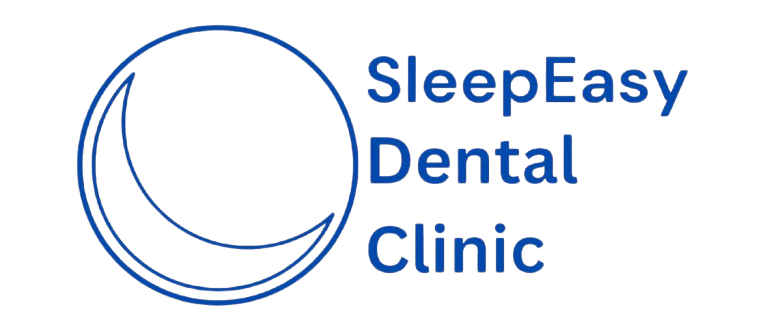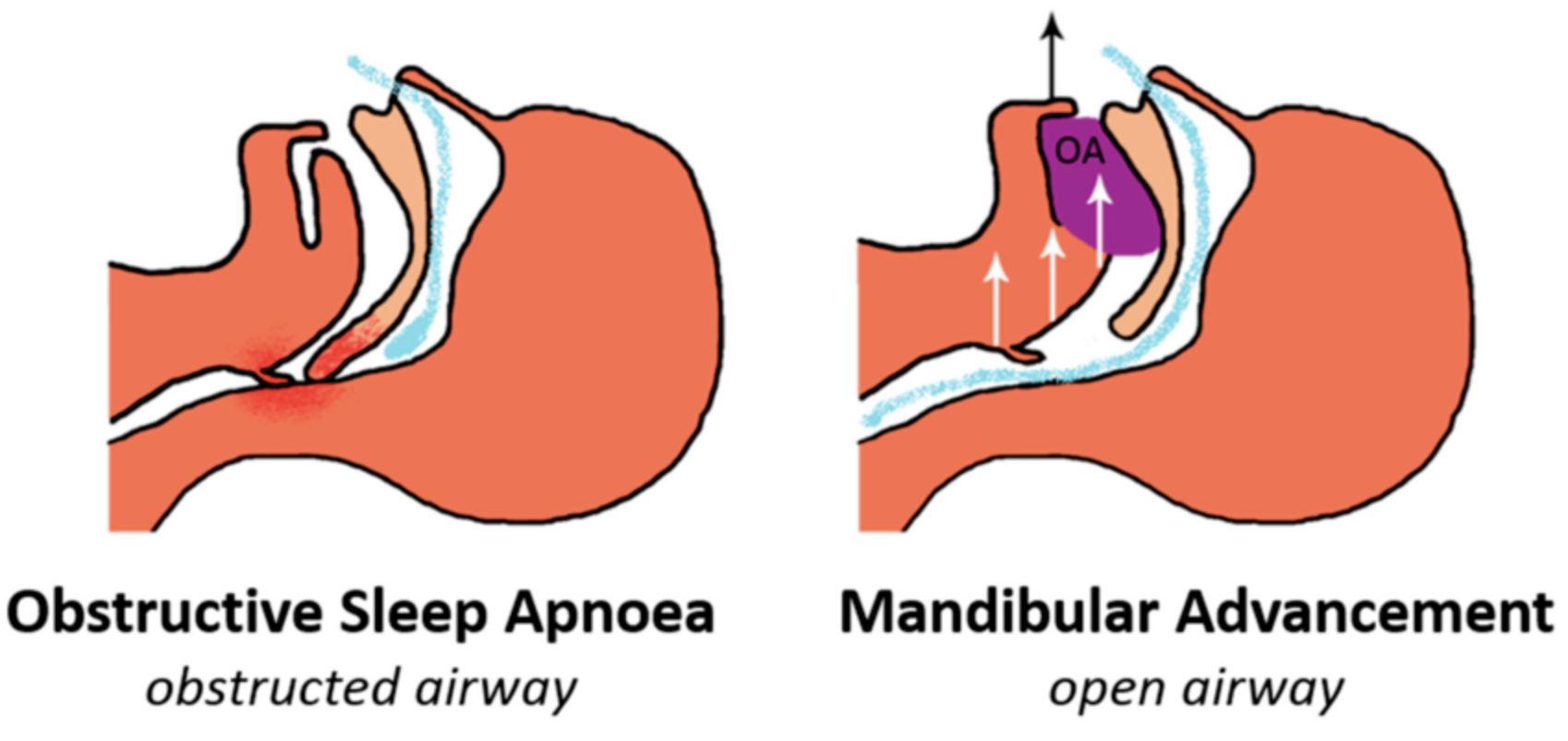
Obstructive Sleep Apnoea
What is Obstructive Sleep Apnoea
Sleep apnoea is a disorder in which the muscles in the throat relax to the point of collapse, restricting airflow. This causes breathing to become shallow and even stop for seconds or minutes at a time, depriving the body and brain of oxygen. The lack of deep sleep can cause significant fatigue and elevate the risk for serious health problems. Most people with sleep apnea are unaware they have it.
Sleep apnoea is much more common than you might expect. It is estimated that up to 10% of adults in the UK may be affected by this condition.
Click here to take a sleep test to see if you may have sleep apnoea.
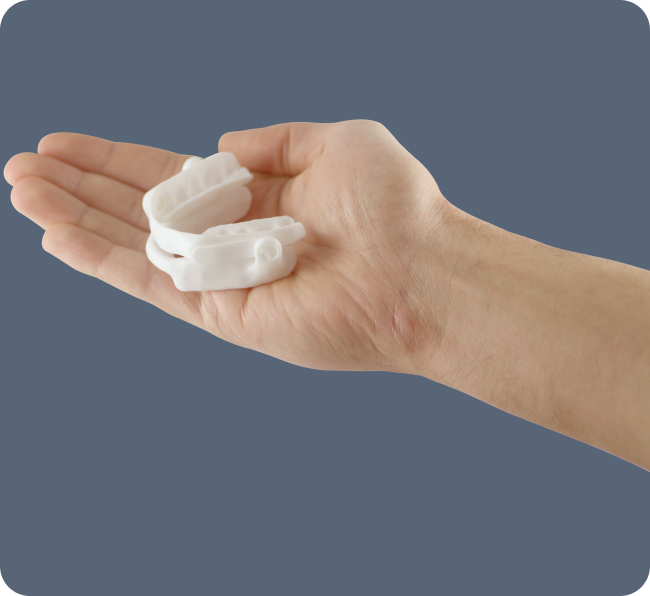
Sleep Apnoea Therapy
Oral Appliance Treatment For Sleep Apnoea
The the world-leading American Academy of Sleep Medicine has recommended two front-line treatments for obstructive sleep apnoea (OSA)- oral appliances and CPAP therapy. Oral appliances are consistently rated as the most comfortable option.
These custom-fitted devices work by gently repositioning the lower jaw and tongue to keep the airway open during sleep, reducing the likelihood of breathing interruptions. Many patients find oral appliances easier to use and more comfortable than other treatments, such as CPAP machines, which can be bulky and difficult to tolerate.
By improving airflow and reducing the frequency of apneas, oral appliance therapy enhances sleep quality and helps alleviate symptoms like daytime fatigue and cognitive impairment. Moreover, it is non-invasive, portable, and effective, making it a practical and appealing option for OSA patients seeking an alternative to more cumbersome treatments.
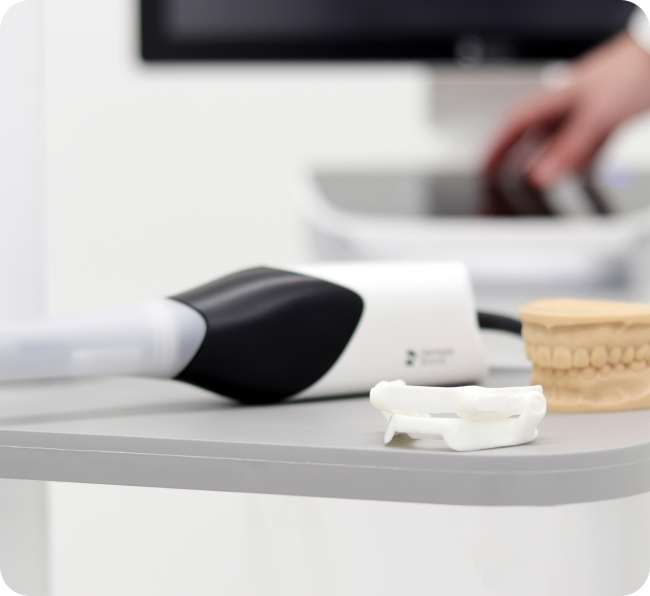
Sleep Study
The Importance Of A Sleep Study
A sleep study is crucial if you are suspected of having obstructive sleep apnea (OSA) because it provides a definitive diagnosis and helps assess the severity of the condition. OSA is a serious sleep disorder where breathing repeatedly stops and starts during sleep, which can lead to long-term health issues like high blood pressure, heart disease, stroke, and daytime fatigue. A sleep study, conducted either at a sleep clinic or at home, monitors key factors such as breathing patterns, oxygen levels, and sleep stages, helping to identify how often airway obstructions occur. It helps us look after you properly.
This data is essential for determining the most appropriate treatment plan, whether it be lifestyle changes, CPAP therapy, or an oral appliance. Without a sleep study, OSA may go undiagnosed, leaving the condition untreated and increasing the risk of significant health complications.
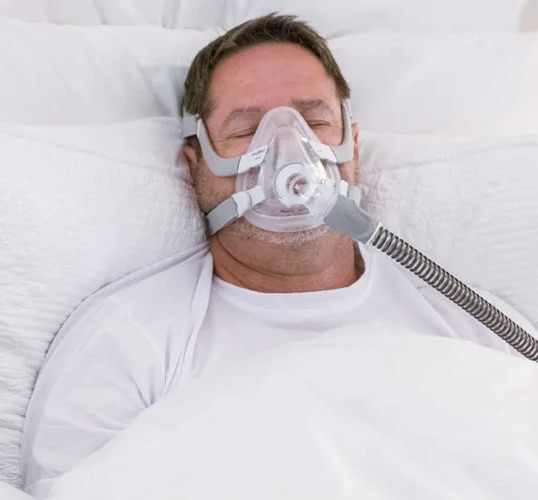
What Else Can I Do?
Other Treatment Options
Continuous Positive Airway Pressure (CPAP) is the most common treatment recommended for people with sleep apnoea. It is a machine that delivers a constant flow of air to your airway as you sleep. It is attached from the machine via a tube and face mask which is worn while you sleep.
Though they are effective, many patients find CPAP tricky to tolerate. They are often described as uncomfortable, noisy and hard to keep in place. In addition, the mask must be removed and replaced if you get up during the night. These issues mean that many patients stop using their CPAP altogether. For this reason, the more comfortable appliances are considered the best alternative to CPAP.
A small amount of people will benefit from oral or nasal surgery to assist with significant airway constrictions. It is more invasive that other treatments, but can be a great option in the right situation.
Other lifestyle factors can certainly help with both snoring and sleep apnoea. These include:
- Weight loss – excess weight can be carried around the neck and contribute to collapse of the airway, exacerbating snoring and sleep apnoea issues
- Good sleep habits – a quiet, dark, cool room and comfortable bed is a great start
- Sleep posture – some issues can be managed with ‘positional therapy’. These can work for people who only have sleep apnoea when on their back
- What to avoid – alcohol can reduce muscle tone, and cigarettes and vapes cause inflammation of the throat. This leads to less airway space and trouble with breathing
Click here to see the NHS guidelines for healthy sleep habits
